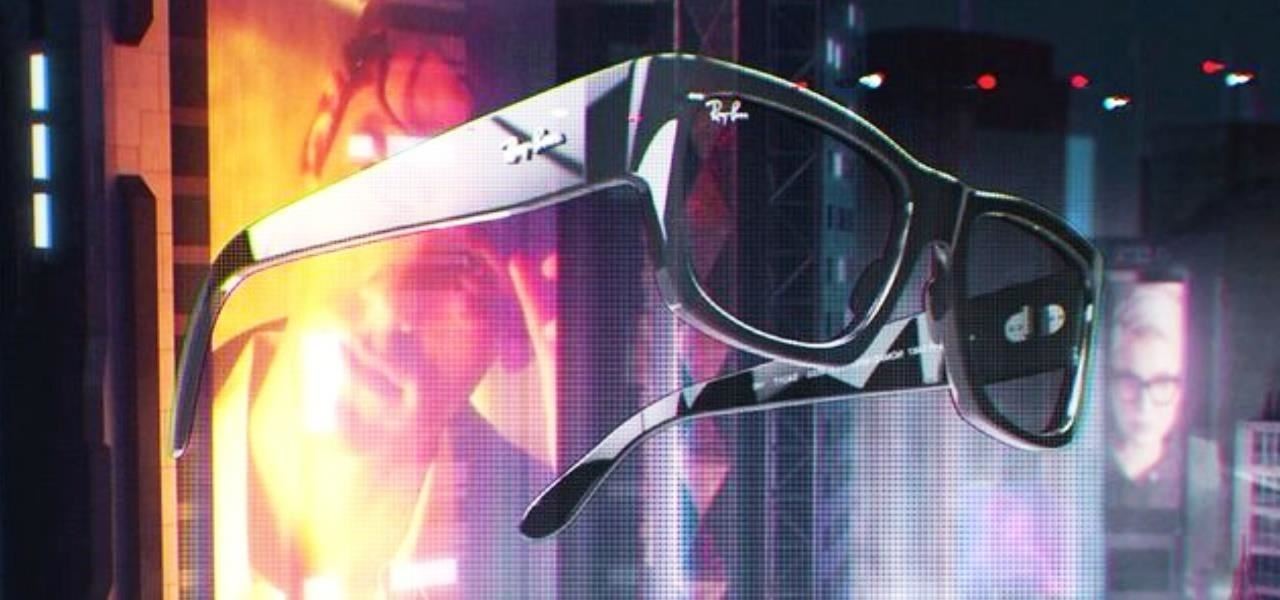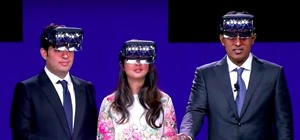Facebook's earnings calls are generally focused on numbers—revenue and user growth.
But this week the company's founder and CEO, Mark Zuckerberg, carved out a significant portion of the call to elaborate on Facebook's plans for immersive computing.
• Don't Miss: Facebook CEO Zuckerberg Uses Latest Appearance to Triple Down on Augmented Reality & Creator Revenue-Focused Future
By now, even non-VR users are aware of the Oculus Quest and its promise to transport you to other worlds. But most of the public is still unaware of Facebook's even bolder augmented reality ambitions. Those ambitions include wearable devices in the form of smartglasses, and a more expansive move toward keeping users wed to its own brand of the AR cloud (what some are also calling "the metaverse").
"Looking ahead, the next product release will be the launch of our first smart glasses from Ray-Ban in partnership with EssilorLuxottica," said Zuckerberg during the call. "The glasses have their iconic form factor, and they let you do some pretty neat things. So I'm excited to get these in people's hands and to continue to make progress on the journey towards full augmented reality glasses in the future."
Of course, Zuckerberg didn't reveal much more about the smartglasses, but given all the variables in play, it's safe to assume that it probably won't be a fully functioning Project Aria style device with cameras and AR capabilities (although it might!). More likely, the device will fall into the wearable notifications device category, perhaps something like the Amazon Echo, albeit a lot more stylish given the Ray-Ban designer pedigree.
This constant drumbeat signaling the arrival of the Facebook-meets-Ray-Ban device indicates that the device will indeed ship near the end of the year as Zuckerberg has previously pledged, thus beginning the company's baby steps into the smartglasses space in earnest.
However, when we look back at this time, what will probably stand out as more important is Zuckerberg's focus on "the metaverse."
For a moment, cast your mind back to 2015, when many tech insider naysayers were openly calling VR a frivolous waste of time, and there was only marginal mainstream interest in AR as the next computing interface. Around that time, Zuckerberg (according to a leaked email document revealed in 2019) was already laying the foundation for achieving "superiority" in the AR and VR space by way of a proposed (but failed) bid to acquire Unity.

"It's important to own the core technology you depend on to achieve your mission. Even if there is potentially a path forward with it, owning it increases integration opportunities and decreases risk," wrote Zuckerberg in the memo detailing his AR/VR platform ambitions.
"Increasing our developer surface area will give us more opportunities to integrate and upsell our key platform services over time. Just like developers who deeply rely on Google's Play Services are more likely to use the next Play Service API that comes out, developers who use more of our systems to build their VR/AR experiences will also be likely to use additional services as we build them as well."

This early strategic approach may have been modified in recent years, but there's no reason to believe this isn't still Zuckerberg's game plan—to own the biggest AR/VR software platform. So when he talks about the metaverse in 2021, it's worth paying very close attention.
"These efforts are also part of a much larger goal to help build the metaverse," said Zuckerberg on Wednesday. "We believe that this is going to be the successor to the mobile Internet. You're going to be able to access the metaverse from all different devices and different levels of fidelity from apps on phones and PCs to immersive virtual and augmented reality devices."
Those comments tell the real story: Facebook is absolutely investing in AR and VR hardware, but the real play is the software, the platform…the metaverse.
"It could take a lot of work and no one company is going to be able to build this all by themselves," said Zuckerberg. "Part of what I've learned over the last five years is that we can't just focus on building great experiences. We also need to make sure that we're helping to build an ecosystem so millions of other people can participate in the upside and opportunity of what we're all creating. They're going to need to be new protocols and standards, new devices, new chips, new software from rendering engines to payment systems and everything in between."
And while he talks about the metaverse as being "built in a way that is open for everyone to participate," it's impossible to consider the notion that a "Facebook metaverse" would likely be run in much the same way as Facebook is, that is, proprietary, and very tightly controlled.
It should also be noted that what's missing from Zuckerberg's metaverse talk is the mention of cryptocurrency and blockchain technology. The current frenzy around NFT assets have already shown us how blockchain technology will be an essential part of the metaverse, but for some reason, Facebook hasn't openly tied its upcoming Diem crypto project to its virtual initiatives. But make no mistake, Facebook's blockchain and metaverse will almost certainly go hand in hand with regard to payments, deals, and seller marketplaces.
For now, Zuckerberg's blue sky vision of the metaverse sounds good, but most technology veterans will first look to the company's demonstrated history to discern what the true out of a Facebook metaverse will be.
"The metaverse is also going to be the next chapter for us as a company," said Zuckerberg. "And in the coming years, I expect people will transition from seeing us primarily as a social media company to seeing us as a metaverse company."
Just updated your iPhone? You'll find new features for Podcasts, News, Books, and TV, as well as important security improvements and fresh wallpapers. Find out what's new and changed on your iPhone with the iOS 17.5 update.























Be the First to Comment
Share Your Thoughts